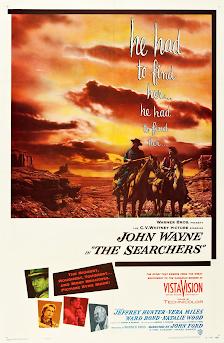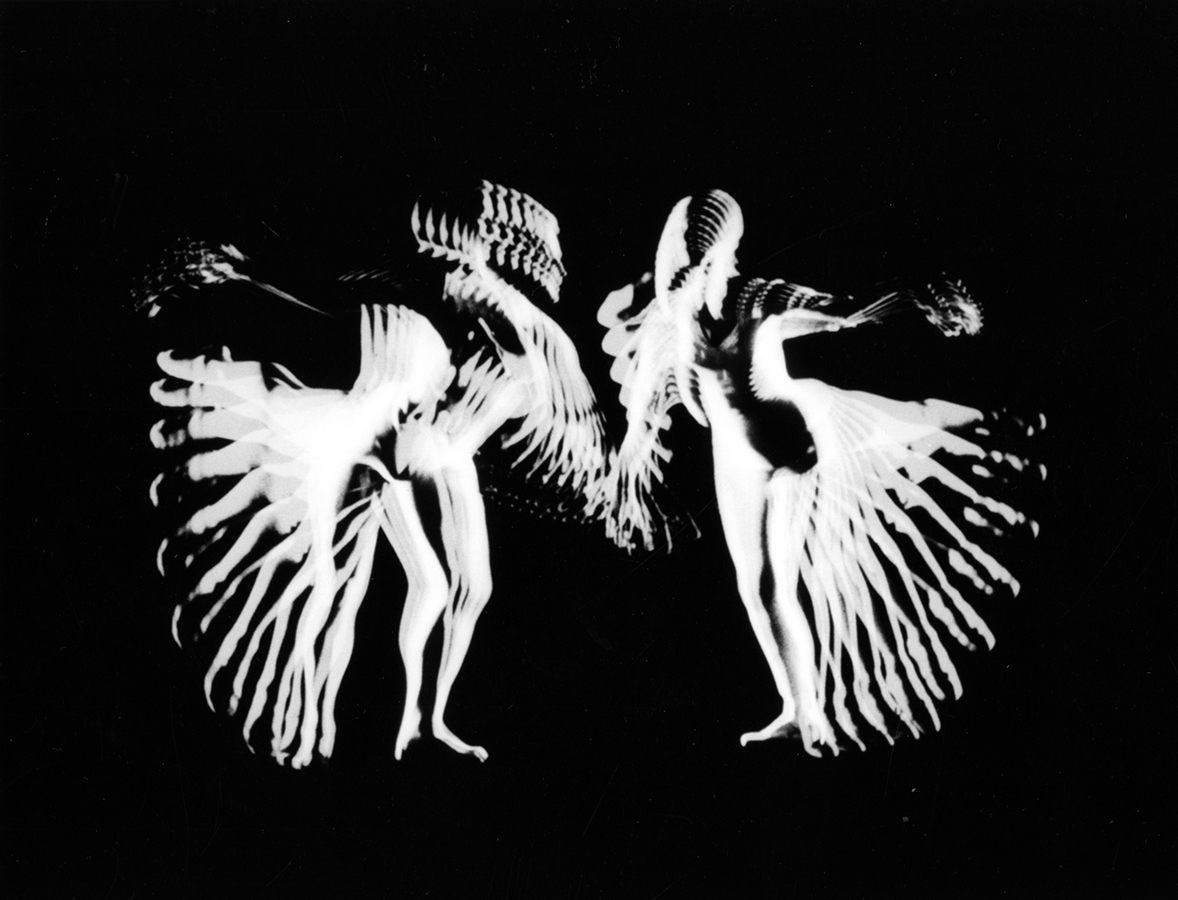The Western Hero Deconstructed in The Searchers and A Fistful of Dollars (Essai comparatif en anglais)
|Italie - 1964|
In the mid-1950s and early 1960s, filmmakers began to
question the dichotomies and traditional narrative elements of the mythologized
west such as the “black hat, white hat” archetype. In this revisionist
tendency, traditional western heroes, like cowboys and cavalrymen, lose some of
their lusters. In John Ford’s The Searchers, Ethan, the
protagonist, is one of the first to be blatantly racist in American westerns.
Meanwhile, in Italy, certain filmmakers propose an even more radical approach,
the spaghetti westerns. They reject almost all the values depicted in classical
westerns as naïve and propose a more cynical approach. I will argue that the
characters of Ethan Edwards in The Searchers and Joe in
Sergio Leone’s A Fistful of Dollars both dispute the
mythologized discovery of the west and question the heroic portrayal of the
western hero. I will begin with a discussion of the characters’ biases then
continue with their ethics and motivations.
Before the fifties, the first nations’ depiction in
Western films had remained mostly functional. With the forties, Hollywood
started depicting first nations realistically, or at least sympathetically,
often employing real natives. But it is only in the 1950s that filmmakers
started to question the validity of the “manifest destiny” mythology they had
empowered according to which Anglo-Saxon white Americans had a God-given right
to settle everywhere in America. This questioning echoes the anxiety regarding
the civil rights movement that is taking magnitude. It is a divergence
between The Searchers and A Fistful of Dollars.
Since, A Fistful of Dollars is an Italian film, the civil
rights movement did not preoccupy its director, Sergio Leone, as much as it
preoccupied John Ford. American filmmakers transposed, in the old west, the
questions that trouble them in contemporary times. In The Searchers,
John Ford does not hide the disdain of Ethan Edwards toward the Native
Americans, or toward the women who had been captured by Native Americans. For Ethan,
these women “ain’t white… anymore. [They are] Comanche[s]” (Ford 1:15:40). This
also applies to his captured niece, Debbie, who he has promised to find. Ford
reverses the expectations regarding his hero. Ethan is not the chivalrous
figure common to so many western films in which the hero searches for a “damsel
in distress” to deliver. There is a sense that if he finds Debbie, he will kill
her. And indeed, that is what Martin fears when he says to Laurie, “It is what
I am afraid of Laurie, [Ethan] finding her” (Ford 52:05). To Ethan, a woman captured
by Native Americans is dead. When he writes his testament, leaving as sole
beneficiary Martin, his adopted “half-breed” nephew, he does not forget to
mention that he is “without any blood kin” (Ford 1:30:57). To him, the Debbie
that he knew as a little girl and to whom he gave his confederate army medal is
dead. In his racist endeavors, Ethan’s methods are as violently irrational as
the methods of the Comanche. He desecrates bodies twice. The first time is when
he shoots a dead Comanche’s eyes. Scorned by his comrades, he simply retorts
without eyes “[the Comanche] has to wander forever between the winds” (Ford
00:26:51). The second time, he scalps Scar, the Comanche warrior who killed his
family and captured Debbie; the scalping refers to the treatment suffered by
Martha, Ethan’s sister-in-law (Ford 1:55:14). Through how Ethan’s racism is
characterized in The Searchers, the portrait of the hero
defending the community, the myth of the community created by “brave” settlers
is shaken. Settlers such as Ethan become more savage than the savageness they claim
to tame (Eckstein 18).
It is not only the violence of Ethan and Joe that
innovates modern westerns but the moral ambiguity of their motivations that is ground-breaking.
According to Philip French, “the hero is the embodiment of good, […] [he]
respects the law, the flag, women, and children […] he uses bullet and words
with equals care, is a disinterested upholder of justice and uninterested in
personal gain. He always wins” (French 48). Yet both characters do not follow
those principles. Ethan does not respect the law. It is implied by Ford that
the protagonist is wanted in the North for bank robberies he committed. Indeed,
Ethan always carries on him “Yankee” gold coins, and he makes it clear to the
sheriff that his only allegiance is to the Confederate States of America (Ford
00:11:59-00:12:31), despite the film is set in 1868, three years after the
American Civil War. Ethan and Joe do not “use bullet and words with equals
care”, they speak only when necessary, and let guns do most of the talking. Regarding
charity, it is hard to argue that the characters are “uninterested in personal
gain” (French 48). Ethan’s motivation is to kill Debbie, he searches for Scar
to avenge his family and his sister-in-law. It is implied by Martha and Ethan’s
kiss, and her caressing his confederate cloak, that they have an illicit love
affair (Ford 00:13:18). When Ethan comes back to the ruins, left by the
Comanches, of his brother’s home, he only seems to care about Martha. Him
holding Debbie, looking her in the eyes, and deciding to spare her has not much
to do with a sudden redemption. In the conflict that opposes his hate of
Comanche to his adulterous love for Martha, he chooses to save the last memory
that Martha had left him before dying, her daughter. In summary, Ethan’s
“heroic” actions are not motivated by the altruism of traditional western
heroes, but by his impulses and desires. Joe’s good deeds also find their
source in unheroic goals. The town in which he finds himself is crooked by two
bandit gangs. When he learns that fact, he says, “There’s money to be
made in a place like this” (Leone 00:12:34). He does not care
about the perpetual violence that reigns in the town. As the title suggests, he
is only interested in making a “Fistful of Dollars”. His methods for acquiring
these profits are as treacherous as the villains’. For example, he fabricates a
piece of information that he sells to both rival gangs for five hundred
dollars. In the end, unlike Ethan, he finds a semblance of redemption; he saves
a holy family, Marisol, and Jesus, from the claws of one of the gangs.
Nevertheless, just like Ethan, once the peace is re-established, he is unfit to
live in the society that he defended. Both are loners. Ethan was first a
warrior, a soldier who has lost his purpose in times of peace, he has a
savageness that scares his own family. As Sue Matheson suggests, “He cannot be
purified because, for him, the war has not ended” (Matheson 206). This is why
at the end of the film, in the famous doorway scene, as the lyrics of the
closing song suggest, he just “ride[s] away” (Ford 1:58:04). As for Joe, he
also rides away into the unknown, he says that he cannot remain in a frontier
village where he will be caught the middle of the Mexican armies and the United
States armies. But, he never wanted to stay, “[Leone’s] heroes and villains are
not the pioneers of a new west, but [its] temporary leaseholders” (Frayling
189). In this way, Ethan and Joe have of eclipsing themselves when the issue at
the center of the film is resolved, they share similarities with traditional
western heroes, except that they are not the embodiment of good. Ethan and Joe,
both metaphorically and literally do not wear white hats. They quit the
civilization because their violence is the next threat to the community not
because they are metaphorical angels; they could be the villain in other films.
In summary, Ethan and Joe differentiate themselves from earlier forms of western protagonists because they are not traditional heroes since they are hateful, violent, and self-interested. Myths helped bound communities together, but they often overlooked the vices of reality. Ethan and Joe represent these vices that society has denied. They highlight the idea that communities were not created by principled heroes, but instead by men of action who often did not have the best of motivations. As they say in John Ford’s The Man Who Shot Liberty Valance, “This is the West, sir. When the legend becomes fact, print the legend” (Ford 1:59:41-1:59:48).
Works
Cited
Eckstein, Arthur M. “Darkening Ethan: John
Ford’s ‘The Searchers’ (1956) from Novel to Screenplay to Screen.” Cinema
Journal, vol. 38, no. 1, 1998, pp. 3–24. JSTOR, https://doi.org/10.2307/1225733. Accessed 7 Feb. 2023.
Ford, John, director. The
Searchers. Warner Bros., 1956.
Ford, John, director. The
Man Who Shot Liberty Valance. Paramount Pictures, 1962.
Frayling, Christopher. Spaghetti
Westerns. Routledge & Kegan Paul, 1980.
French, Philip. Westerns.
Secker and Warburg, 1973.
Leone, Sergio, director. A
Fistful of Dollars. Metro-Goldwyn-Mayer, 1964.
Matheson, Sue. The Westerns
and War Films of John Ford. Rowman & Littlefield, 2016.




Commentaires
Publier un commentaire